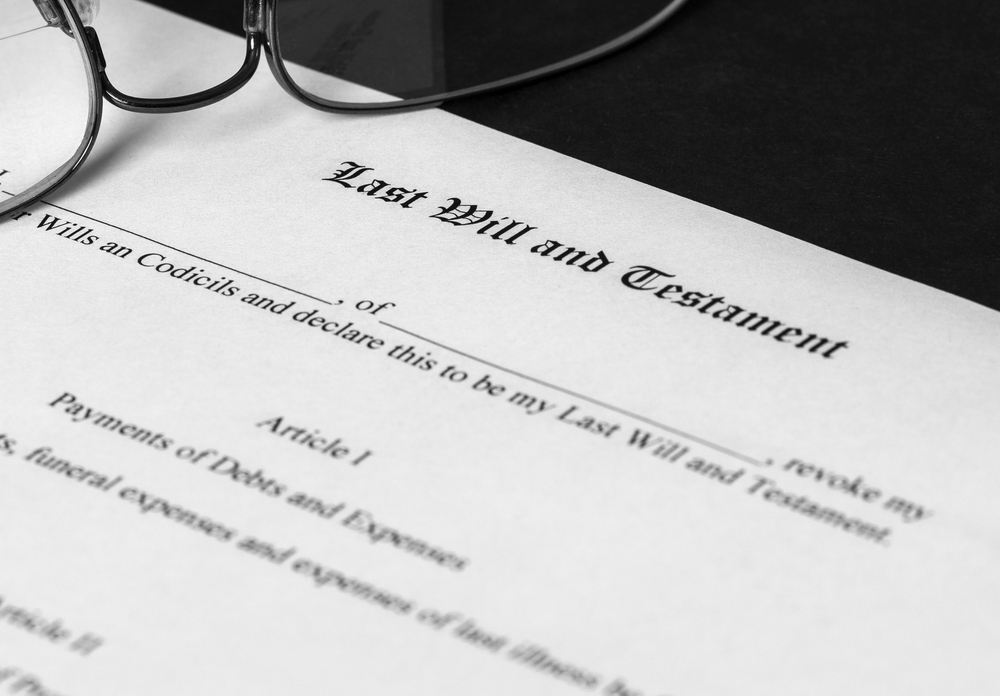 Wills are very common estate planning tools with great value when it comes to having the freedom of determining to whom your estate will be distributed after your death. Without one, you die “intestate,” which means how your estate is distributed is established by the intestate succession laws in your state. Even with its clear benefits, there can be complications if your will is challenged after your death. Will contests can be expensive and stressful on your family. An easy way to guard against one common challenge to the validity of your will is to create, what is called a “self-proving will.”
Wills are very common estate planning tools with great value when it comes to having the freedom of determining to whom your estate will be distributed after your death. Without one, you die “intestate,” which means how your estate is distributed is established by the intestate succession laws in your state. Even with its clear benefits, there can be complications if your will is challenged after your death. Will contests can be expensive and stressful on your family. An easy way to guard against one common challenge to the validity of your will is to create, what is called a “self-proving will.”
The first step in drafting your will is making sure it meets all of the legal requirements to be valid. Each state sets out the specific legal requirements for a valid will. Most states accept wills from another state, as long as the legal document is considered valid under the other state’s laws. The general requirements for a valid will are the same in most states. The will must be in writing, it must be signed by the person creating the will, and it must be signed by at least two witnesses who were present at the execution of the document by the "testator" (the person whose will it is) and the signatures of the other witnesses.
Nevada’s laws regarding “Wills and Estates of Deceased Persons,” are set forth in the Nevada Revised Statutes, Title 12, Chapter 133 Wills, Sections 133.020 through 133.050. In Nevada, every person of sound mind, over the age of 18 years, can create a will. The terms “sound mind” simply means the person has not been determined to be, or is not obviously legally incompetent. As in most states, a will in Nevada must be in writing and signed by the testator and two witnesses.
Witnesses must also be 18 years of age or older and generally competent. The beneficiaries should not be witnesses; rather the witnesses should be independent third parties. A will is not invalid because one of the witnesses is a beneficiary. However, if there are not at least two disinterested witnesses, then the one who is a beneficiary must give up the portion of their gift that exceeds the amount or value they would have received under the laws of intestate succession.
It is not uncommon for wills to be challenged. The benefit of creating a self-proving will is that, the court will automatically accept the will as authentic. Consequently, the probate process, when a self-proven will is involved, is much simpler. There is no need for the witnesses to be located and brought into court to give testimony.
Creating a self-proving will in Reno is not very difficult. The only extra step is for the testator and the witnesses to affirm the will’s authenticity by notarized affidavit, or by affirming under penalty of perjury that they have witnessed the signing of the testator, verified that he or she is over the age of majority and is apparently competent. The process of self-proving a will can be completed at the time the will is executed, or later, including upon the testator’s death. The affidavit is typically made a part of the will and attached to it. Even if the witnesses are available to testify when the testator dies, having a self-proving affidavit eliminates the delay and effort in requiring the witnesses to testify in court.
If you have questions regarding self-proving wills, or any other estate planning needs, please contact Anderson, Dorn & Rader, Ltd., either online or by calling us at (775) 823-9455.




